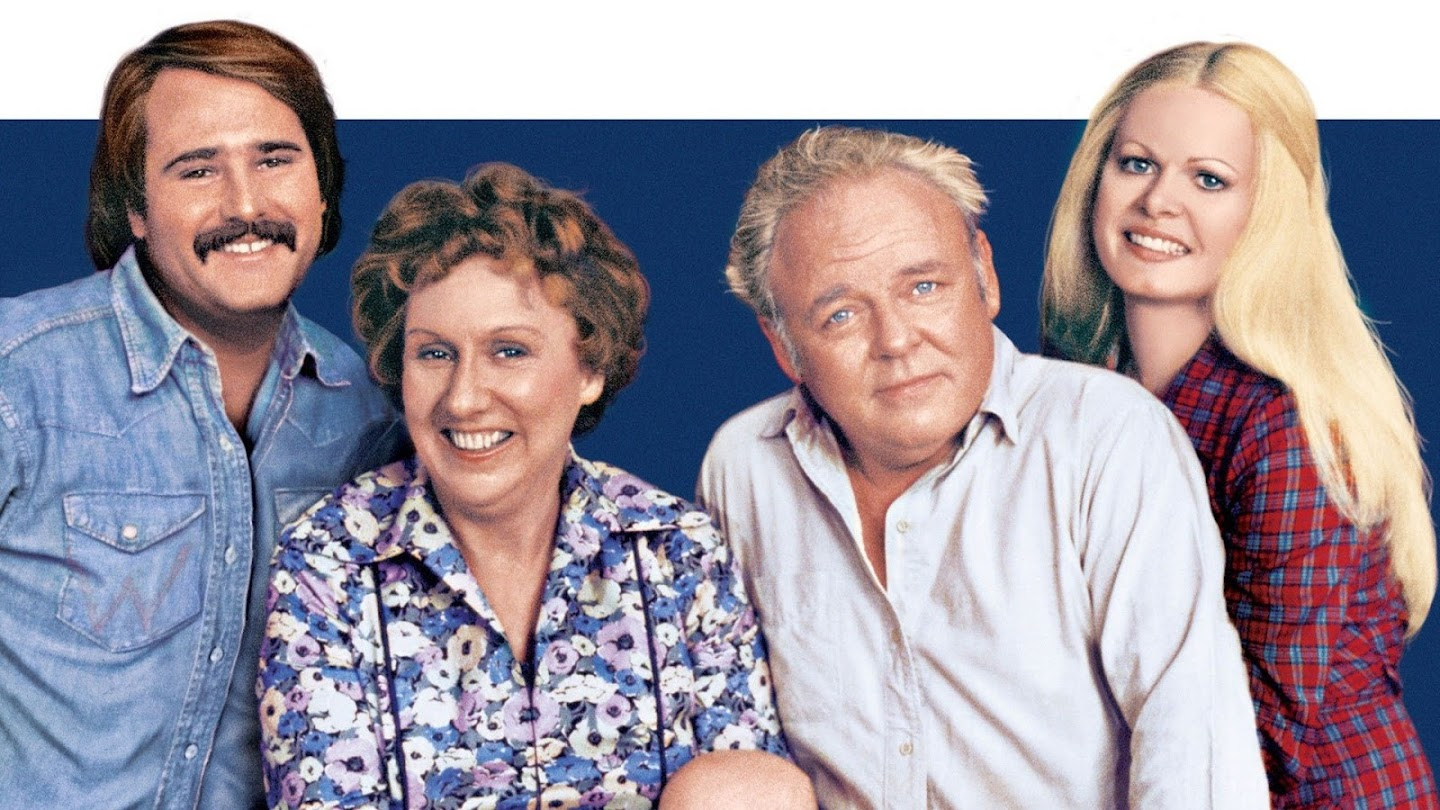
In 1971, a groundbreaking TV show made its debut on American television and, in doing so, revolutionized the very landscape of television entertainment. “All in the Family” was more than just a sitcom; it was a cultural revolution. Its unapologetic approach to controversial topics like race, gender, and politics set the stage for future generations of shows to follow suit. But what was it about this seemingly simple family sitcom that became such an iconic force in television history?
The brainchild of legendary television producer Norman Lear, “All in the Family” broke every rule of conventional sitcoms. It introduced audiences to the Bunker family, but in particular, to the irascible patriarch, Archie Bunker—an outspoken, blue-collar man with deeply entrenched views on race, gender, and society. What made Archie so memorable, however, was not just his bigoted behavior, but how he represented the social tensions of the time, making the show not just funny, but thought-provoking and revolutionary.
The Creation of “All in the Family” Before “All in the Family,” television shows were primarily focused on safe, family-friendly humor, with characters who embodied idealized versions of the American family. Norman Lear, however, was interested in doing something different. Inspired by his own experiences growing up in a working-class family, he wanted to create a show that depicted the realities of American life in all their complexity, including the uncomfortable and controversial subjects that were often swept under the rug.
In “All in the Family,” Lear introduced Archie Bunker—a character whose deeply entrenched, often offensive views would not only challenge conventional sitcom norms but also spark fierce debates across the country. Portrayed by Carroll O’Connor, Archie was an unapologetic, working-class man with outdated, prejudiced ideas that clashed with the more progressive viewpoints of his family members, especially his liberal son-in-law, Mike Stivic. The constant clashes between these two characters provided much of the show’s comedy, but also served as a vehicle for addressing serious social issues.
The Revolutionary Humor What made “All in the Family” so unique was the way it tackled taboo topics with humor. Archie’s bigotry, while offensive, was portrayed not just as a flaw but as a symptom of larger societal issues. The show used satire to expose the absurdity of the societal norms Archie adhered to, turning uncomfortable truths into laugh-out-loud moments. It wasn’t just about making fun of Archie—it was about highlighting the way his views mirrored the divisive attitudes that existed in society.
Some of the most memorable episodes include those that deal directly with issues like racism, homosexuality, and women’s rights. For example, in one episode, Archie grapples with his discomfort at the idea of his daughter’s friend being gay, providing the show an opportunity to discuss LGBTQ+ issues in an era when such conversations were rarely seen on mainstream television. Through humor, the show gently challenged viewers to reconsider their own biases.
The Impact on Society and Television “All in the Family” didn’t just change the format of sitcoms—it changed the way television showed the real world. The show’s groundbreaking success opened the door for other series to explore complex issues like race, politics, and gender in ways that had never been attempted before. By doing so, “All in the Family” helped to pave the way for shows like “The Jeffersons,” “Maude,” and “Good Times,” all of which took on tough societal issues with similar boldness.
But the show’s impact went beyond television. It sparked conversations in households across America about race, gender roles, and class divides. Viewers could no longer escape from these difficult conversations. They were forced to confront the contradictions and biases within society, and many of these conversations continue to echo today.
Legacy of All in the Family “All in the Family” aired for nine seasons and became one of the most beloved and influential sitcoms in history. It was so successful that it helped to redefine what television could be. While the series ended in 1979, its legacy continues to influence the television landscape today. From politically charged comedies like “The Simpsons” and “South Park” to more dramatic series exploring similar themes, “All in the Family” set the stage for a new era of television that wasn’t afraid to tackle the hard topics.
Though Archie Bunker was far from a perfect hero, his character represented the very real struggle that many Americans were facing in terms of evolving societal norms. “All in the Family” showed that comedy could be both funny and meaningful, and it remains an iconic symbol of television’s ability to both entertain and educate.
